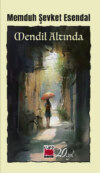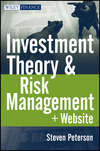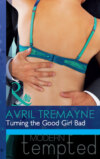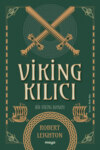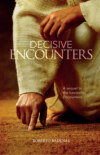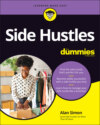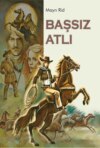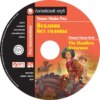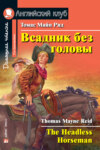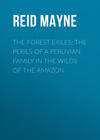Kitabı oku: «The Maroon», sayfa 35
Volume Three – Chapter Twenty Eight
Setting the Signal
The short tropic twilight had passed, and night had descended upon the Island of Jamaica. It promised to be a night of deepest darkness. The moon would not rise before midnight; and even then she might not be seen, as the canopy was covered with a thick curtain of black cumulus clouds, through which neither star nor speck of blue sky was visible.
Alike lay valleys and mountains shrouded in amorphous darkness; and even the Jumbé Rock – the highest and most conspicuous summit for miles around – was wrapped in complete obscurity. Its vitreous flanks no longer sparkled in the light, since there was none; and its dark mass was so dimly outlined against the equally sombre background of the sky, as to be invisible from the valley below.
The form of a man, groping his way up the narrow ravine that debouched upon the summit of the rock, could not have been distinguished, much less the black hue of his skin, the deformity that marked his figure, or the hideous aspect of his countenance. And yet a man so characterised climbed up there, about half-an-hour after the going down of the sun.
It need scarce be said that that man was Chakra, the Coromantee. Who else would be seeking the Jumbé Rock at that hour?
What was his errand up there? Let the sequel declare.
On setting foot upon the platform, he undid the knot that fastened the skin mantle over his shoulders; and then taking off the garment, he spread it out upon the rock.
The stick he had brought up with him he placed along one edge, and there made it fast with some pieces of string. When this was accomplished, he lifted both stick and cloak from the rock, and, proceeding to the palm, he laid the stick transversely across the stem, at about the height of his own hand, and then lashed it fast to the tree.
The kaross now hung down the stem, in a spread position, the transverse stick keeping it extended to its full width.
While arranging it thus, Chakra evidently had an eye to the direction – that is, the plane represented by the spread garment had one face fronting the valley of Mount Welcome and the cultivated lowlands between that and Montego Bay, while the reverse side was turned towards the “black grounds” of Trelawney – a tract of wild country in which not a single estate, plantation, or penn had been established, and where no such thing as a white settlement existed. In this solitude, however, there were black colonies of a peculiar kind; for that was the favourite haunt of the absconded slave – the lurking-place of the outlaw – the retreat of the runaway.
There, even might the assassin find an asylum, secure from the pursuit of justice. There had he found it: for among those dark, forest-clad mountains more than one murderer made his dwelling.
Robbers there were many – even existing in organised bands, and holding the authorities of the Island at defiance.
All these circumstances were known to Chakra; and some of the robbers, too, were known to him – some of the fiercest who followed that free calling.
It was to communicate with one of these bands that the preparations of the myal-man were being made. Chakra was preparing the signal.
Satisfied that the skin cloak was extended in the proper direction, the Coromantee next took up his reflector-lamp; and having attached it against that side of the kaross facing towards the mountains, he took out his flint, steel, and tinder, and, after striking a light, set the wick on fire.
In an instant the lamp burned brightly, and the light, reflected from the bits of looking-glass, might have been seen from the back country to the distance of many miles; while, at the same time, it was completely screened from any eye looking from the side of the plantations. The projecting edges of the calabash hindered the rays from passing to either side; while the interposed disc of the spread kaross further prevented the “sheen” that otherwise might have betrayed the presence of the signal.
It was not meant for the eyes of honest men in the direction of Montego Bay, but for those of the robbers among the far hills of Trelawney.
“Jess de sort ob night fo’ dem see it,” muttered the myal-man, as with folded arms foe stood contemplating the light. “De sky brack as de Debbil’s pitch-pot. Ole Adam, he sure hab some ’un on de look-out. De sure see ’im soon.”
Chakra never looked more hideous than at that moment.
Stripped of the ample garment, that to some extent aided in concealing his deformity a scant shirt, of coarse crimson flannel, alone covering the hunch; most part of his body naked, exposing to the strong light of the reflector his black corrugated skin; the aspect of his ferocious features compressed by the snake-encircled turban upon his temples, the long-bladed knife and pistol appearing in his waist-belt – all combined to produce a fearful picture, that could not fail to strike terror into whoever should have the misfortune to behold it.
Standing immovable under the glare of the lamp, his misshapen figure projected across the surface of the summit platform, he might easily have been mistaken for a personification of the fiend – that African fiend – after whom the rock had been named.
In this situation he remained, observing perfect silence, and with his eyes eagerly bent upon the distant mountains, dimly discernible through the deep obscurity of the night. Only for a few minutes was this silence preserved, and the attitude of repose in which he had placed himself.
“Whugh!” he exclaimed, dropping his arms out of their fold, as if to set about some action. “I know’d dey wud soon see um. Yonner go’ de answer!”
As he spoke, a bright light was seen suddenly blazing up on the top of a distant eminence, which was suddenly extinguished.
After a short interval another, exactly similar, appeared in the same place, and in a similar manner went out again; and then, when an equal interval had elapsed, a third.
All three resembled flashes produced by powder ignited in a loose heap.
The moment the third response had been given to his signal, the Coromantee stepped up to his reflector and blew out the light.
“Dar’s no use fo’ you any mo’,” said he, apostrophising the lamp; “dar am some danger keepin’ you dar. B’side, it am a gettin’ cold up hya. A want my ole cloak.”
So saying, he took down the reflector, and after it the kaross; and, separating the latter from the piece of stick, he once more suspended the garment around his shoulders. This done, he moved forward to the front of the platform; and dropping his legs over, sat down upon the edge of the rock.
Volume Three – Chapter Twenty Nine
The Cry of the Solitaire
From the spot where he had seated himself, the mansion of Mount Welcome was in view – that is, it would have been, had it been daytime, or even a moonlight night. As it was, however, darkness veiled the whole valley under its opaque shadows; and the situation of the house could only have been guessed at, had it not been for the light streaming through the jalousied windows. These revealed its position to the eyes of the Coromantee.
More than one window showed light – several that were side by side giving out a strong glare. These Chakra knew to be the side windows of the great hall, or drawing-room. Its front windows could not be seen from the Jumbé Rock: since they faced towards the valley and not to the mountain.
The myal-man knew all this. A forty years’ residence on the estate of Mount Welcome had rendered perfectly accurate his knowledge of the topography of the place.
So much light shining out suggested the idea of cheerfulness, as if company were entertained within.
“Whugh!” ejaculated Chakra, as his eye caught the lights. “Doan look berry much like dey war grievin’. Dey can’t hab heer’d o’ dat ’fair yet. P’raps de hab take de body to de plantashun ob Content? Leetle dey know down dar wha’s been done. Leetle dey dream dat de proud masser ob dat ere Buff am jess at dis minnit a cold corpus. Da’s no house ob mournin’. Dar’s feas’in a-gwine on da’, a be boun’? Nebba mind! Nebba mind! Patience, ole nigga! maybe you come in fo’ share ob dem wittle ’fore he gits cold; and maybe you hab share of the dishes on which de wittle am sa’v’d up – de forks, an’ de ’poons, and de silber plate generumly. Daat will be a haul. Whugh!
“But wha’ care I fo’ de forks an’ de ’poons? Nuffin! Dar’s but one ting a care fo’, an’ dat am more dan silber, more na gold, more na Moun’ Wele’m, itseff! Dat am de Lilly Quasheba. Whugh! A hab lub her fo’ many long year – lub her more’n ebba; yes, a lub her wi’ de whole ’trength ob my soul. Once a git dat bewfu’ gal in dese arms, a no care for de forks and de ’poons. Ole Adam be welc’m take all dem rubbish.
“No,” continued he, after a pause, apparently relenting of his liberality; “dat no do, neider. A soon need boaf de forks and de ’poons. A’ll want him fo’ de housekeepin’. A’ll want de silber an’ de gold to buy odder ting. Muss hab m’ share ’long wi’ de ress.
“Wha am de bess place take my wife to?” muttered the intended husband, continuing the same strain of reflections. “Muss leab de Duppy Hole. Dat place no longer safe. Too near de ole plantashun. Boun’ to be a debbil ob a rumpus atter she carried ’way – daat are ef dey b’lieve she am carried away. Guess a know de way make um b’lieve diff’rent. Nebba mind. A know how manage dat!”
At this moment the reflections of the Coromantee were interrupted by a sound that caused him to draw his legs up on the rock, and assume an attitude as if about to spring to his feet.
At the repetition of the sound, he started up, and rapidly re-crossed to the opposite side.
At the point where the upward path debouched upon the platform, he stopped to listen.
For the third time the sound was repeated.
There was nothing strange in it – at least, to ears familiar with the voices of a Jamaica forest. It was the call of a common yet peculiar bird – the solitaire. The only thing strange was to hear it at that hour of the night. It was not the time when the soft and flute-like note of the solitaire should fall upon the ear of the forest wanderer. Hearing it at that hour was by no means strange to Chakra. It was not that which had startled him from his seat, and caused him to cross quickly to the other side of the platform. On the contrary, it was because he knew that what he had heard was not the note of the solitaire, but a counterfeit call from his confederate, Adam!
Chakra’s private slogan was different – more mournful and less musical. It was an imitation of that melancholy utterance heard at night from the sedgy shores of the dark lagoon – the cry of the wailing bittern.
With a small reed applied to his lips, the Coromantee produced an exact imitation of this cry, and then remained silent, awaiting the result.
At the bottom of the ravine could be heard a murmur of voices, as if several men were together, talking in guarded tones. Following this came a sound of scratching against the stones, and a rustling of branches, each moment becoming more distinct. Shortly after, the form of a man emerged out of the shadowy cleft, stepping cautiously upon the platform. Another followed, and another, until six in all stood upon the summit of the rock.
“Dat you, brodder Adam?” said Chakra, stepping forward to receive the first who presented himself at the head of the sloping path.
“Ya – ya! Am it Chakra?”
“Dat same ole nigga.”
“All right, kommarade. We’ve see yar signal as soon as it war hoisted. We wan’t long a comin’, war we?”
“Berry quick. A didn’t ’speck ye fo’ half an hour mo’.”
“Well, now we’re hya, what’s the game? I hope dar’s a good big stake to play for! Our stock of stuff wants remplenishin’ berry badly. We haven’t had de chance of a job fo’ more dan a month. We’re a’most in want o’ wittles!”
“Wittles!” exclaimed the myal-man, laying a scornful emphasis on the word. “Dar’s a ting for ye do dis night dat’ll gib ye mo’ dan wittle – it gib you wealth – ebbery one ob ye. Whugh!”
“Good!” ejaculated Adam, simultaneously with a chorus of like exclamations; “glad to hear dat ere bit o’ intelligence. Am it dat ere little job you speak me ’bout last time I see you? Dat it, ole humpy?”
“Dat same,” laconically answered Chakra, “only wi’ dis diffurence,” added he; “dat a call um de big job in’tead of de little un.”
“Big or little,” rejoined the other, “we’ve come ready to do it – you see we hab?”
The speaker, who appeared to be the leader of the party who accompanied him, pointed to the others as he made this remark.
The hint was scarce regarded by Chakra. Notwithstanding the murky gloom that enveloped the forms of Adam and his companions, the myal-man could see that they were all armed and equipped, though in the most varied and uncouth fashions. The weapons of no two were alike. One carried an old musket, red with rust; another a fowling-piece, in like condition. Others were provided with pistols, and nearly all had long knives, or machetés. Thus provided, it was scarce probable that the job for whose execution Chakra had summoned them could be one of a pacific character.
Had a light been thrown upon the group that surrounded Chakra, it would have revealed a collection of faces, each provided with a set of features but little less sinister than those of Chakra himself. In not one of them would have been found a line indicative of either peace or mercy – for it was the band of the black robber Adam, celebrated as the most notorious cut-throats in the Island.
Chakra expressed no surprise at seeing them armed, nor felt any. He had expected it; and the flourish which their leader had made of this fact was only intended to make manifest that they were ready for the ordinary requirements of their vocation.
Eagerly willing were they for the extremest action; but, in order to make more certain of their compliance, Chakra thought it prudent to ply them with a little rum.
“Ma frien’s,” said he, in an affectionate tone, “you hab had de fatigue ob a long walk troo de darkness ob de night. A hab got hya a leetle drop ob someting dat’s berry good fo’ keep de cold out ob you. ’Pose we all take a wet from dis bottle?”
To this proposition there was a general assent, expressed in varied phraseology. There was no teetotaller in that crowd of worthies.
Chakra had not thought of providing himself with either drinking-cup or calabash; but the want was scarcely felt. The robbers each in turn refreshed himself directly from the neck of the bottle, until the rum ran out.
“Well, ole humpy,” said Adam, drawing Chakra aside, and speaking in that familiar phrase that betokened a thickness of thieves between them. “I suppose the chance you spoke ’bout hab come round at las’?”
“Da’s a fack, brodder Adam. It hab come now.”
“De great buckra gone from home?”
“He gone from home, and gone to home, ha! ha!”
“Come, dat’s a riddle. What you mean by gone to home?”
“To ’im long home. Da’s wha’ I mean.”
“Ha!” exclaimed Adam; “you don’t say the Cussos – ”
“Nebber mind ’bout the Cussus now, brodder Adam. Dat you know all ’bout atter wards. It am the Cussus’ silber plate dat consarn you now; and dar’s no time to was’e in p’laverin’. By de time we gets down da, an’ puts on de masks, dey’ll be a-gwine to bed. Better dey wa’ gone to bed; but by dat time, you see, de moon ’ud be up, an’ fo’ all dese clouds mout shine out. Dat, as you know, won’t nebba do. We must ’ticipate de risin’ ob de moon.”
“True enuf. All right! I’m ready, and so are de rest.”
“Den foller me, all ob you. We can plan de mode ob ’tack as we trabbel ’long. Plenty ob time fo’ dat, when we find out how de land lie down below. Foller me!”
And with this injunction, the Coromantee commenced descending the ravine, followed by Adam and his band of burglars.
Volume Three – Chapter Thirty
A Sad Procession
On that same evening, about half-an-hour before sunset, a singular procession was seen moving along the Carrion Crow Road, in the direction of Mount Welcome. Its slow progress, with the staid looks and gestures of those who composed the procession, betokened it to be one of a melancholy character.
A rude litter, carried upon the shoulders of four men, confirmed this impression; more especially when the eye rested upon a human form stretched along the litter, and which could easily be identified as a dead body, notwithstanding the camlet cloak that covered it.
There were ten individuals forming this funeral cortège; though all were not mourners. Two were on horseback, a little in advance of the rest. Four followed, carrying the litter; while close behind these came four others, two and two – the foremost pair being lashed arm and arm to one another – each also with his hands tied behind his back, and both evidently prisoners. The two that brought up the rear appeared to be guarding them.
The individuals composing this mournful procession may be easily identified.
The two riding in advance were Herbert Vaughan and the Maroon captain; the horses they bestrode being the same that had passed over that road the day before, carrying the Custos and his negro attendant. The prisoners were the Spanish caçadores– their guards, Quaco and the before-mentioned attendant; while the four men bearing the body were slaves belonging to the plantation of Content.
It need scarce be added that the corpse, stretched stark and stiff upon the litter, was all that remained of the grand Custos Vaughan.
Strictly describing them, not one of the procession party could be called a mourner. None of them had any reason to be greatly aggrieved by the fate that had befallen the owner of Mount Welcome – not even his relative. Notwithstanding this absence of a cause for grief, the faces of all – the prisoners excepted – wore a look of decent gravity becoming the occasion.
Perhaps the nephew would have more keenly felt the situation – for now that his uncle was no more, every spark of hostility had become extinguished – perhaps he might even have mourned, but for certain circumstances that had just come to his knowledge; and which had the effect not only to counteract within his heart all tendency towards sorrow, but almost to overpower it with joy.
It was only with an effort, therefore, that he could preserve upon his features that expression of sadness, due to the melancholy position in which he was placed.
Despite the presence of death, his heart was at that moment filled with a secret satisfaction – so sweet that he could not deny himself its indulgence. The source of this satisfaction may be easily traced. It will be found in the information communicated to him by the Maroon captain. During their journey of the preceding day, their vigil of the night, and, still further, their long, slow march of that morning, Cubina had made known to him many circumstances of which he had been hitherto ignorant; among other items of intelligence, one of the most interesting that language could have imparted.
It need scarce be said what this was. It may be guessed at by recalling the conversation between the Maroon and his mistress Yola, occurring at the last tryst under the ceiba– that part of it which related to the Lilly Quasheba. Though Cubina’s knowledge was only second-hand, it was sufficiently definite to inspire Herbert with hope – something more than hope; and hence that secret joy whose outward manifestation he found it difficult to suppress.
Every word of the conversation that had passed between the Maroon and his mistress – every word that referred to her mistress – Cubina had been compelled to repeat over and over again; till Herbert knew it as well as if he had been present during the dialogue. No wonder he was not in a condition to feel very profoundly for the sad fate that had befallen his uncle – hitherto only known to him as a relative harsh and hostile.
Other secrets had Cubina disclosed to him – among the rest, the true character of his patron, Jessuron – which Herbert had already begun to suspect, and which was now revealed to him in all its hideous wickedness. The history of the Foolah prince – hitherto unknown to Herbert – besides his own experiences during the last twenty-four hours, was sufficient to confirm any suspicion that might point to Jacob Jessuron. Though it was plain that the two prisoners in the custody of Quaco had not actually assassinated the Custos, it was equally clear that such had been their intention, anticipated by a death of another kind. This both Cubina and Herbert conjectured to have proceeded from the same hand – the hand of Herbert’s ci-devant host.
The phrase is appropriate. Long before Herbert had heard one half of Cubina’s disclosures, he had resolved never more voluntarily to set foot in the Happy Valley – much less return to seek shelter under the roof of Jessuron.
If he should hereafter have aught to do with the Israelite, it would be in the course of justice; as avenger of the death of his murdered relative. That Loftus Vaughan was the victim of assassination neither he nor the Maroon for a moment doubted. The conversation which the latter had listened to between Chakra and the Jew – and which, unfortunately, at the time he had not clearly comprehended – was no longer mysterious; only its motive remained so. The deed itself had now furnished the terrible interpretation.
Neither Herbert nor Cubina had any idea of permitting the matter to drop. An event of such fearful significance called for the fullest investigation; and they were now proceeding with the preliminary step – carrying the body to Mount Welcome, in order that the authorities might be called together, and an inquest instituted.
How different were the feelings of Herbert from those he experienced on his former and first approach to the mansion of his haughty relative! He was now the victim of emotions so varied and mingled as to defy description!

